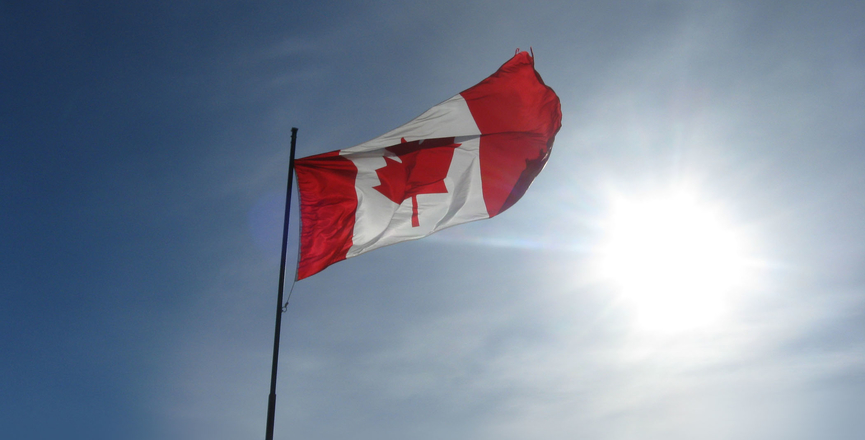In response to the COVID-19 pandemic, one of the measures the federal government has taken was closing the Roxham Road irregular border crossing, a site where thousands of immigrants make unauthorized entry into Canada to seek asylum. The move came to effect on March 21, and since then, according to reports, asylum seekers have been turned away.
In a time when everyone is asked to stay home to stay safe, people who are forced to leave their homes are trapped between borders because only citizens and those with status can receive safety and comfort in Canada.
This time last year I was in exactly the position of the hundreds of asylum seekers on the other side of the border, except last year the world wasn’t threatened by the pandemic.
In April 2019, with my American student visa expiring, I had to decide which way I wanted to go. One way was going back home, Afghanistan, the country that is known to be the worst place to be a woman in the world, where my life was threatened. The other way was to cross the border and seek asylum in Canada. Staying in the U.S. was never an option. With Donald Trump’s anti-immigrant and anti-Muslim attitude, I knew that I was more likely to be deported back to Afghanistan, like thousands of other asylum seekers.
One afternoon in mid-April, as I was exploring my ways to Canada, I heard about Roxham Road, a refugee’s path to safety in Canada. After reading a few articles, I booked my tickets to the Plattsburgh airport which is about 20 minutes away from the Roxham Road border.
I never felt more scared, lonely, uncertain and vulnerable in my entire life as I felt that afternoon. While my friends were excited to be returning home, I was losing mine. And I kept asking myself why and what I was being punished for? A question that neither I nor the millions of people who are forced to flee their homes have the answer for.
It was never easy to leave everything behind and walk to a country to seek protection with no status and absolutely no one waiting for me. Would I have done it if I saw a small ray of hope for myself in Afghanistan? The answer is never. And this is the reality for thousands who flee conflict, violence or other crises.
While it’s crucial to take all the necessary steps to save lives, ignoring asylum seekers, arguing it’s because of extraordinary times, is both immoral and illegal. A pandemic cannot justify turning away refugees knowing that they can be later deported to a country where they will face torture and prosecution.
Under the 1951 Refugee Convention, Canada is obliged to allow people to seek asylum and have their refugee cases decided by court. Returning asylum seekers to the U.S. knowing they will be deported to their home country is in contravention of refugee law. Article 33 of the convention states: “No Contracting State shall expel or return (“refouler”) a refugee in any manner whatsoever to the frontiers of territories where his life or freedom would be threatened on account of his race, religion, nationality, membership of a particular social group or political opinion.”
Canada and the U.S. might have the Safe Third Country agreement, but it’s evident that under Trump’s administration, the U.S. is not safe for asylum seekers.
Closing the border to irregular immigrants won’t stop COVID-19 from spreading further and asylum seekers from entering Canada, but would instead make border crossings more dangerous. Knowing their lives will be at risk if they don’t make it to a safe place, people will take dangerous alternative roads and/or rely on smugglers.
Of course, leaving the border open to asylum seekers during a pandemic requires more resources, but so does keeping the border closed to irregular immigrants. From my personal experience at the Roxham Road border, even in normal circumstances asylum seekers cannot leave their shelters for days after being detained at the border. And everyone is compelled to go through a mandatory medical exam.
Before closing the border to refugees, did Justin Trudeau think of how many resources will be needed to allow asylum seekers into Canada during this pandemic, or was it obvious to him that asylum seekers don’t deserve safety during extraordinary times like this pandemic?
Extraordinary times require extraordinary measures that include the most vulnerable. It’s time for the national response plan that addresses this pandemic to include asylum seekers, because nothing, not even a pandemic, can excuse governments from their legal and moral obligations to protect those who are forced to flee their homes and need protection.
Neela Hassan is an Afghan journalist and refugee based in Ontario. She obtained an MA in communications and development studies in the U.S., and prior to coming to Canada, she worked with the United Nations Office for the Coordination of Humanitarian Affairs in Kabul, Afghanistan. She worked for Afghan media in Kabul as a writer and reporter between 2012-2015.
Image: Shannon/Flickr



